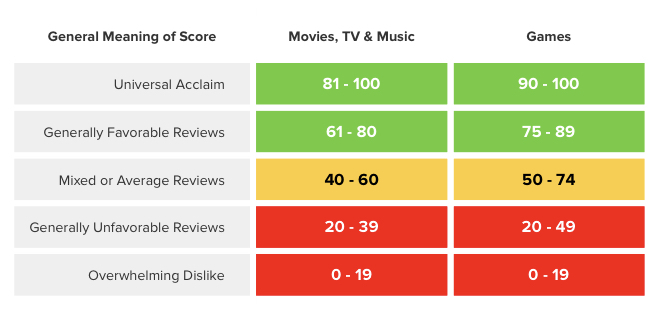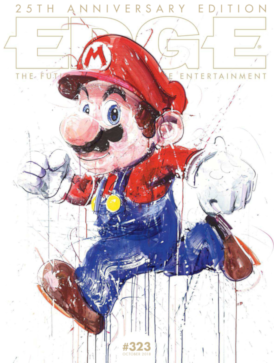Ratchet and Clank: Rift Apart positives are Rivet (more engaging than Ratchet), the environments, graphics, and combat. The criticisms, in case others haven't read it yet:
"But during the chase to retrieve it, we jump at the wrong time and fall just short of a grind rail. And then we keep falling. It takes a good ten seconds or so to realise our extended plunge isn't part of the plan – we haven't blundered into a rift, but a glitch in the game itself. Throughout the ten to 12 hours that follow, there's no bigger bombshell.
Not everyone will see that as a criticism; to some, it will be an invitation. Because for better or worse, Rift Apart is pretty much exactly the game you expect it to be. It doesn't fall below our expectations (apart from that early eye-opener, and it would be unfair to linger further when at the time we simply reload from the checkpoint a few moments before, and continue), nor does it exceed them. It meets its remit to the letter...If that is what you wanted from Rift Apart, it will undoubtedly show you a good time, as Insomniac's games so often do. And if you were hoping for more? Well. This may not be the Lombax you're looking for."
"That its leads play second fiddle might preclude
Rift Apart from being a great Ratchet & Clank game, but Insomniac is on typically fine form here. Even with all the plot setbacks that see both pairings foiled just as they're about to get their hands on whatever MacGuffin they're currently seeking – the number of times either Nefarious pops up at the worst possible time verges on parody – there is constant forward momentum, a tangible desire to hurry you onward. In hindsight, it can feel like a devious distraction technique, a way to blinker the player to the relative shallowness of its systems. But in the moment it sustains a strong pace, shifting from brisk exploration to short puzzle segments to breakneck pursuits to rail-grinding set-pieces to obstacle courses where you hurtle up ramps and through boxes of bolts in jet-powered boots or – no, really – jet-powered beetles."
" 'A playable Pixar game' is the line that's been trotted out by critics since the series' PS3 era, if not before, but if
Rift Apart approaches that standard from a visual standpoint, the script is mid-tier Dreamworks at best. In truth, the plot is largely an excuse to get characters from A to B (usually via X or Y), and the cinematics are hardly excessively long. But that propulsive momentum comes at a cost, never providing much space to emotionally invest in the events as they hurriedly unspool, while the jokes are more hit-and-miss than usual. And even when battling across different dimensions, we encounter the same enemies once too often: one giant robot with a long health bar is much the same as the next, even if Insomniac affords them different names."
"Those rifts, meanwhile, have been designed to flex PS5's SSD speeds rather than be used for anything more inventive. The ability to be in two places (almost) at once has dazzling potential, which is partly realised during a dynamic early encounter where you fight a mini-boss on several planets. That bodes well for Insomniac developing the idea further, yet beyond a handful of sequences where you fly or fall from one dimension into another, that doesn't really happen. During combat you can latch onto smaller rifts, producing a wonderful visual effect that looks like you're dragging the world toward you, but it's effectively a slightly fancier grapple. In one world you whack purple crystals with your wrench to visit a mining planet while it's both intact and reduced to jagged fragments. But outside of using magnetic boots to latch onto metal platforms floating untethered in space, it's a missed opportunity. What could have involved some head-spinning cause-and-effect puzzles is reduced to nothing more than navigating your way to the next crystal and hitting it to switch from light world to dark or vice versa.
Yet that is clearly a trade-off Insomniac was prepared to make to keep everything moving. (It's telling that the few puzzle areas, in which Clank is tasked with fixing dimensional irregularities, are fully skippable.) The result is one of the sprightliest blockbusters since Insomniac's own
Spider-Man: Miles Morales, and a lesson in pacing from which Sony's forthcoming PS5 big guns would do well to learn. Sure, you might find it starting to slip from memory even as the credits are rolling, but in the moment? For the most part, it's rather riveting."
Sounds like a 7.
Right, the numbers also show that, however they also show that statistically their level of harshness can or seemingly does differ quite notably platform to platform, with them statistically better alligning with aggregates on average with Nintendo games, and more strongly falling below aggregates (on average) with Sony (where the data shows the largest discrepancy to meta) and now Microsoft published titles.
Presumably the editors at Edge simply have a preference for Nintendo or Nintendo style games, and are more critical outside of that, which is fine. Everyone has preferences, it's just surprising it correlates so site/publication wide.
You can say I'm reading too much into the numbers, but the numbers literally don't lie. It's just statistical analysis. Again, that's not my personal feeling or musing or anything, but what the numbers/data show.
This reads like a conspiracy theory. No evidence and narratives like Nintendo preference based solely on review score numbers. It's pretty easy to ascertain if reviews are read on why certain Nintendo games (not all get great scores!) and it's because of creativity, good gameplay, innovation, and clarity. EDGE aren't alone in praising some Nintendo games like this, critics, forums like here, and developers themselves will often praise those same games for their excellent gameplay and creativity.

www.resetera.com



